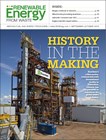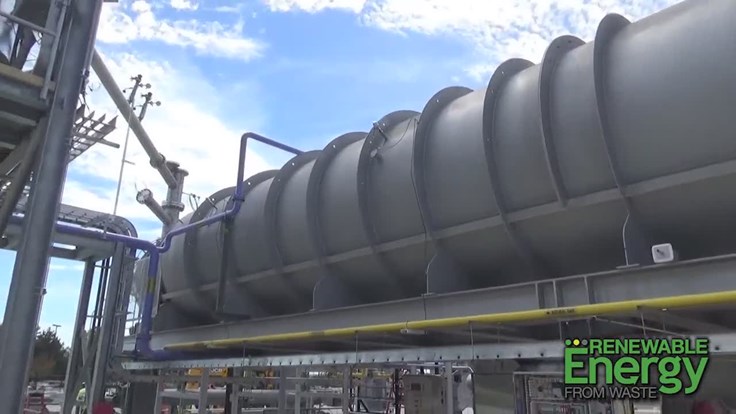The Renewable Energy from Waste Conference is underway in Orlando. The third annual REW Conference began Monday, Nov. 16 with a preconference workshop titled Public Sector Planning for Waste Conversion Projects.
Several attendees attended the interactive setting, which gave them the opportunity to engage with the presenters and ask questions throughout the workshop.
The half-day workshop kicked off with Harvey Gershman, president of Gershman, Brickner & Bratton (GBB), Fairfax, Virginia, discussing where to begin when procuring a waste conversion project. He noted the importance of knowing where the costs are in project and to make use of technology to coordinate meetings with the stakeholders involved with the project.
Among the reason procurements fail, according to Gershman are too high costs, lack of a site, technology risk, inadequate waste supply, regulatory pushback, fear of hurting recycling, a lack of financing and a lack of political will.
“Have a recycling element as part of your strategy for waste to energy,” he advised.
He also recommended what he referred to as “economic flow control,” where the project is not reliant on a tipping fee. He reminded attendees that collection is two-thirds the cost of managing waste and to anticipate a “burp” from affecting the project at some point.
Rick Sapir, a partner at the law firm of Hawkins, Delafield & Wood, discussed financing arrangements and considerations.
“The greater the need for the project, the more intimate and involved the relationships,” he said.
In terms of the waste conversion technology, he recommended to find out where the technology has worked with the same feedstock and volume for several years. He emphasized that while it is important to have “all your ducks in a row,” the No. 1 duck is the site for the project.
Other important factors are an experienced, well-capitalized vendor, permitting, and an off-taker. An ideal situation is the offtaker being the municipality, Sapir said.
Sapri also discussed legal procurement considerations. He advised not to evaluate projects “in a vacuum” and to get all parties involved as early as the negotiation phase.
“Have the person at the table to you do have to go back to them and find out,” he explained. Determining scope and responsibilities, allocation of risk and end of term is all part of the negotiation equation.
Mark Hammond, executive director of the Solid Waste Authority of Palm Beach County (SWA) in West Palm Beach, Florida, rounded out the workshop panel by discussing his experience as the public entity responsible for managing the county’s municipal waste. Already operating a refuse-derived fuel waste-to-energy facility, the authority looked at building a second waste-to-energy facility in 2005 to extend the life of the landfill.
He said the SWA started aggressively working in 2007-2008 on the project. It first submitted a Request for Qualifications (RFQ) which resulted in three companies who were interested. They were Covanta, Wheelabrator and Babcock & Wilcox (B&W;). Each of the three vendors developed a complete design/build contract and operational/maintenance agreement and had a series of meeting with the authority. Each vendor was required to submit separate technical and financial proposals.
While Covanta ranked highest marginally on the technical proposal, B&W; came in substantially lower on the financial proposal ($200 million-plus), in part, said Hammond, because the company makes its own boilers. Its operational costs were about $8 million per year lower than Wheelabrator, the next closes bid, and over $200 million less than the highest building cost proposal from Covanta. Over the course of 20 years, Hammond, noted, the B&W; proposal offered a significant savings. It was not a case of cutting corners, as B&W; also is the operator of the facility, Hammond said, “They are not going to short-change us or they are going to have to live with it for 20 years,” Hammond added.
The main conference sessions are Tuesday, Nov. 17, and Wednesday, Nov. 18 at the Caribe Royale, in Orlando. Look for additional session reports at www.rewmag.com and in Renewable Energy from Waste magazine.
Renewable Energy from Waste Conference kicks off in Orlando, Florida
Preconference workshop provides insights into public-sector planning.
- November 17, 2015
- REW Staff



